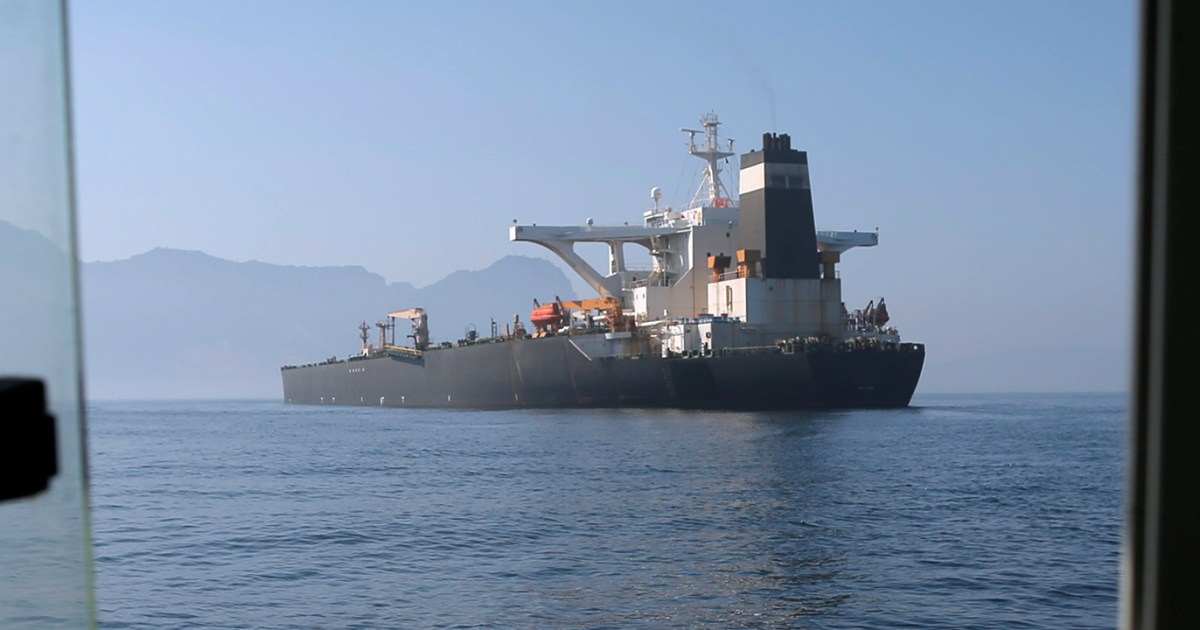An investigation published by The Wall Street Journal that the Israeli army had targeted Iranian ships heading to Syria revealed a "new front in the conflict between Tel Aviv and Tehran," according to US and regional officials.
The Wall Street report coincides with statements by a spokesman for the Iranian Shipping Company on Friday that an Iranian container ship was damaged in a "terrorist" attack in the Mediterranean last Wednesday.
The spokesman added that the ship (Shahrekord) was slightly damaged by an explosive charge that caused a small fire, but no one was injured on board. He added that "such terrorist acts amount to maritime piracy and violate international law regarding the security of commercial navigation."
Today, Friday, Israeli officials did not make any comments in response to a question about whether Israel was behind the (Shahrekord) accident announced by Iran, but the "The Independent" in its Persian version, reported that "the ship was hit by a missile, possibly an air-to-ground type." , While sailing in the eastern Mediterranean near Syrian territorial waters.
Days ago, reports by the Israeli Ministry of Defense concluded that Iran bears responsibility for the attack on an Israeli company in the Sea of Oman, while Tehran denied responsibility.
Israeli Prime Minister Benjamin Netanyahu also accused Iran of being behind the two explosions that targeted the cargo ship, and threatened to respond to the attack, describing Iran as the biggest enemy of Israel.
Netanyahu said that "it is clear that this is an Iranian act," and threatened that Israel would respond to that, indicating that it was striking Iran on all fronts, and would continue to do so.
A new front
Returning to the Wall Street report, Israel targeted 12 ships believed to be carrying Iranian oil, fearing that the oil profits would finance extremism in the Middle East, the newspaper said.
The newspaper indicated - quoting US and regional officials - that some of the attacks targeted Iranian ships that were transporting weapons shipments through the region, in contradiction to US and international sanctions against Iran.
Attacks against Iranian oil tankers had not previously been disclosed, although some Iranian officials had reported some of the attacks earlier, and said that they suspect Israeli involvement, and Israel has not commented before on such incidents, despite the fact that it had previously directed hundreds of strikes. Air force, mostly in Syria, targeting Iranian-backed groups.
However, this disclosure prompted observers to say that Israel has opened a new front that was not known before, namely targeting Iranian ships at sea, after they were targeting Iranian sites through its military aircraft and fighters on Syrian territory and border areas, which opens the way for Iran to respond in kind by targeting Israeli ships.
Last week, Israeli Environment Minister Gila Gamliel accused Tehran of being behind - what she described - the largest Israeli environmental disaster ever, represented by an oil spill of hundreds of tons of tar on the coasts of the Mediterranean.
Tension mounting
Experts spoken to by the Wall Street Journal in its report believe that the series of attacks against Iranian tankers resulted from the international community’s reluctance to act against the export of Iranian oil to Syria, considering that Israel has escalated its attacks as part of a broader campaign on the Iranian economy, and observers believe that Iran has remained silent about the attacks. Because that would appear as a sign and fail to respond militarily.
According to the newspaper, there are no indications that the United States will stand in the way of Israel to deter it from such attacks.
It quoted the expert at the "New American" Center for Studies in Washington, Ilan Goldenberg, as saying, "As long as President Joe Biden's administration believes that the Israelis are still under the threshold of escalation or major conflict. I don't think they will get in the way of what Israel feels it needs to do to protect itself." ".

